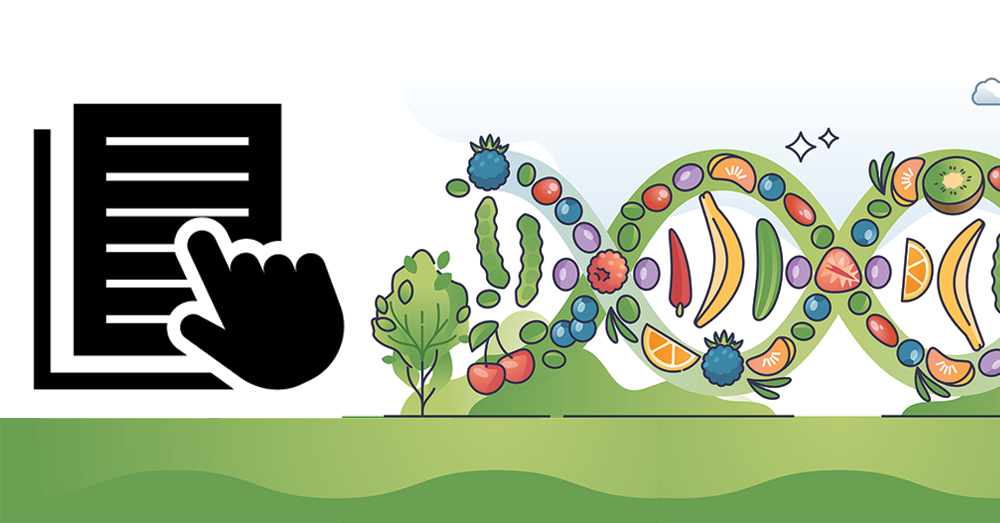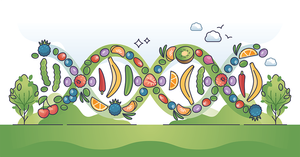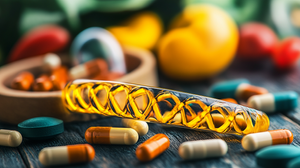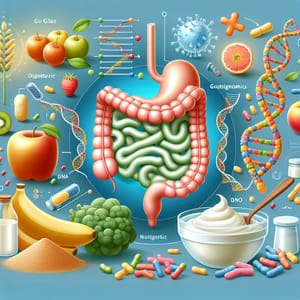Table 1: Genes Influencing Diet Type Suitability
| Gene | RS Number | Alleles | Diet Influence |
|---|---|---|---|
| APOA2 | rs5082 | CC | Higher risk of obesity when consuming high saturated fat. May benefit from low-fat diet. |
| FTO | rs9939609 | AA or AT | Increased risk of obesity. May benefit from high-protein diet. |
| TCF7L2 | rs7903146 | TT or CT | Higher risk of type 2 diabetes. May benefit from low-carb diet. |
| PPARG | rs1801282 | GG or CG | Better response to monounsaturated fats. May benefit from Mediterranean diet. |
| APOE | rs429358, rs7412 | E4 variant | Increased risk of cardiovascular disease. May benefit from low-fat, low-cholesterol diet. |
Table 2: Genes Related to Nutrient Metabolism and Intolerances
| Gene | RS Number | Alleles | Effect |
|---|---|---|---|
| MTHFR | rs1801133 | TT or CT | Reduced folate metabolism. May require more folate-rich foods or supplements. |
| LCT | rs4988235 | GG | Lactose intolerance. Should limit lactose-containing foods or use lactase supplements. |
| GSTT1, GSTM1 | Gene deletion | Null genotype | Reduced detoxification. May benefit from cruciferous vegetables and antioxidants. |
| DAO | rs1049793 | CC | Histamine intolerance. Should limit histamine-rich foods. |
Table 3: Genes Related to Specific Food Component Intolerances
| Gene | RS Number | Alleles | Intolerance | Foods to Avoid |
|---|---|---|---|---|
| AGXT | rs34116584 | TT | Oxalate sensitivity | Spinach, rhubarb, nuts, chocolate, beets |
| UGT1A6 | rs2070959, rs1105879 | Various | Salicylate sensitivity | Berries, citrus fruits, spices, tea, mint |
| FUT2 | rs601338 | GG | Increased lectin sensitivity | Legumes, nightshade vegetables |
| MINPP1 | rs17860213 | TT | Reduced phytate metabolism | Unsoaked nuts and seeds |
| HLA-DR | rs3129882 | GG | Increased mold sensitivity | Aged cheeses, cured meats, dried fruits |
Table 4: Genes Affecting Nutrient Requirements and Absorption
| Gene | RS Number | Alleles | Nutrient | Effect and Recommended Intake | Helpful Foods |
|---|---|---|---|---|---|
| VDR | rs2228570 | TT | Vitamin D | Reduced vitamin D receptor activity. May require higher vitamin D intake. Recommended: 1000-2000 IU/day | Fatty fish, egg yolks, sun exposure |
| GC | rs2282679 | TT | Vitamin D | Lower vitamin D-binding protein levels. May need higher vitamin D intake. Recommended: 1000-2000 IU/day | Fatty fish, egg yolks, sun exposure |
| TRPM6 | rs11144134 | TT or CT | Magnesium | Reduced magnesium absorption. May require higher magnesium intake. Recommended: 400-420 mg/day for men, 310-320 mg/day for women | Leafy greens, nuts, seeds |
| SLC41A1 | rs17453858 | GG | Magnesium | Altered magnesium transport. May benefit from increased magnesium intake. Recommended: 400-420 mg/day for men, 310-320 mg/day for women | Leafy greens, nuts, seeds |
| DIO2 | rs225014 | TT | Iodine | Reduced conversion of T4 to T3. May require higher iodine intake. Recommended: 150 mcg/day for adults | Seaweed, fish, iodized salt |
| SLC5A5 | rs7250346 | CC | Iodine | Altered iodine transport. May benefit from increased iodine intake. Recommended: 150 mcg/day for adults | Seaweed, fish, iodized salt |
| BCMO1 | rs12934922 | AT or TT | Beta-carotene | Reduced conversion of beta-carotene to vitamin A. May need to increase intake of preformed vitamin A. | Liver, eggs, dairy products |
| FADS1 | rs174546 | CC | Omega-3 fatty acids | Decreased conversion of ALA to EPA and DHA. May benefit from direct sources of EPA and DHA. | Fatty fish, fish oil supplements |
| HFE | rs1800562 | AA or AG | Iron | Increased iron absorption, risk of iron overload. Should monitor iron intake and levels. | Limit iron-rich foods and supplements unless directed by a healthcare provider |
| SLC30A8 | rs13266634 | CC | Zinc | Altered zinc transport. May benefit from increased zinc intake. Recommended: 8-11 mg/day for adults | Oysters, beef, pumpkin seeds |
| NBPF3 | rs4654748 | CC | Vitamin B6 | Lower vitamin B6 levels. May benefit from increased intake. Recommended: 1.3-1.7 mg/day for adults | Poultry, fish, potatoes |
| FUT2 | rs602662 | GG | Vitamin B12 | Lower vitamin B12 levels. May benefit from increased intake or supplementation. Recommended: 2.4 mcg/day for adults | Meat, fish, eggs, B12 supplements |
Table 5: Genes Associated with Celiac Disease and Non-Celiac Gluten Sensitivity
| Gene | RS Number | Alleles | Condition | Effect |
|---|---|---|---|---|
| HLA-DQ2.5 | rs2187668 | T | Celiac Disease | Increased risk (necessary but not sufficient for celiac disease) |
| HLA-DQ8 | rs7454108 | T | Celiac Disease | Increased risk (necessary but not sufficient for celiac disease) |
| HLA-DQ2.2 | rs2395182, rs7775228, rs4713586 | T, G, A | Celiac Disease | Increased risk (necessary but not sufficient for celiac disease) |
| TNFAIP3 | rs2327832 | G | Non-Celiac Gluten Sensitivity | Associated with increased risk |
| CSMD1 | rs12812006 | G | Non-Celiac Gluten Sensitivity | Associated with increased risk |
Table 6: Genes Affecting Requirements for Specialty Nutrients
| Gene | RS Number | Alleles | Nutrient | Effect and Recommended Intake | Helpful Foods/Supplements |
|---|---|---|---|---|---|
| COQ2 | rs4693075 | CC | Coenzyme Q10 | Reduced CoQ10 synthesis. May benefit from increased intake. | Fatty fish, organ meats; CoQ10 supplements |
| NQO1 | rs1800566 | TT | Coenzyme Q10 | Decreased CoQ10 utilization. May require higher intake. | Fatty fish, organ meats; CoQ10 supplements |
| SLC22A4 | rs1050152 | CC | Alpha Lipoic Acid | Altered carnitine transport. May benefit from alpha lipoic acid supplementation. | Organ meats, spinach, broccoli; ALA supplements |
| CPT2 | rs1799821 | GG | Acetyl L-Carnitine | Altered fatty acid oxidation. May benefit from L-carnitine supplementation. | Red meat; L-carnitine supplements |
| APOE | rs429358, rs7412 | E4 variant | Phosphatidylserine | May benefit from increased phosphatidylserine intake for cognitive function. | Fish, white beans; Phosphatidylserine supplements |
| NAMPT | rs10808546 | GG | NMN | Altered NAD+ metabolism. May benefit from NMN or NR supplementation. | Edamame, broccoli, avocado; NMN or NR supplements |
Table 7: Genes Affecting Insulin Resistance, Leptin Sensitivity, and Hunger Regulation
| Gene | RS Number | Alleles | Effect |
|---|---|---|---|
| IRS1 | rs2943641 | CC | Increased risk of insulin resistance |
| PPAR-gamma | rs1801282 | GG | Improved insulin sensitivity |
| FTO | rs9939609 | AA | Increased risk of obesity and leptin resistance |
| LEP | rs7799039 | AA | Altered leptin production, potential leptin resistance |
| LEPR | rs1137101 | GG | Reduced leptin receptor function, potential leptin resistance |
| GHRL | rs696217 | TT | Increased ghrelin levels, potentially increased hunger |
| MC4R | rs17782313 | CC | Increased risk of obesity, altered hunger signaling |
Table 8: The COMT Gene and Its Dietary Implications
| Gene | RS Number | Alleles | Effect | Dietary Implications |
|---|---|---|---|---|
| COMT | rs4680 | GG (Val/Val) | Fast COMT enzyme activity | May tolerate higher amounts of catecholamines and catechol-rich foods |
| COMT | rs4680 | GA (Val/Met) | Intermediate COMT enzyme activity | Moderate tolerance to catecholamines and catechol-rich foods |
| COMT | rs4680 | AA (Met/Met) | Slow COMT enzyme activity | May be sensitive to catecholamines and catechol-rich foods |
For references see the link below:
Nutrigenomics Cheat Sheet References
Complete Nutrigenomics References [1] Corella D, et al. (2009). APOA2, dietary fat, and body mass index: replication of a gene-diet interaction in 3 independent populations. Archives of Internal Medicine, 169(20), 1897-1906. [2] Zhang X, et al. (2012). FTO genotype and 2-year change in body composition and fat distribution in

Doctor Emi





